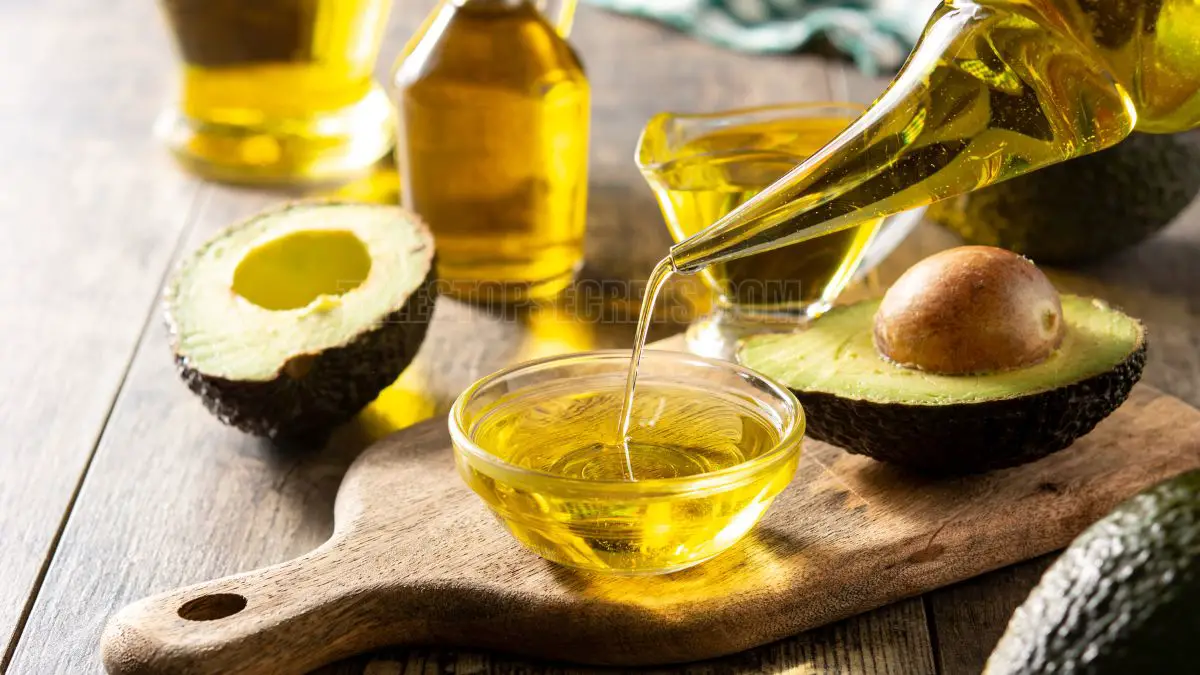When it comes to choosing the healthiest cooking oil, the debate often boils down to olive oil versus avocado oil. Both are renowned for their health benefits, but which one should you use? In this post, we’ll compare olive oil and avocado oil, examining their nutritional profiles, health benefits, and culinary uses. Whether you’re cooking, baking, or dressing a salad, understanding the strengths of each oil can help you make the best choice for your diet and lifestyle.
Olive oil and avocado oil are both excellent for health, but they offer different benefits. Olive oil is rich in monounsaturated fats and antioxidants, making it ideal for heart health. Avocado oil, on the other hand, has a higher smoke point and contains vitamins like E and K, which are great for skin health. Both are nutritious, but your choice might depend on cooking methods and specific health goals.
Curious about which oil is best for your kitchen? Read on to discover how olive oil and avocado oil stack up in terms of flavor, health benefits, and cooking versatility. Get all the facts you need to make an informed decision and elevate your cooking with the perfect oil!
The Perks of Olive Oil
I've had a blast digging into olive oil's perks. It really is liquid gold, boosting my cooking and health. Let's chat about how it fights off inflammation and helps with chronic diseases, thanks to its antioxidant powers.
Bye-Bye Inflammation
Extra-virgin olive oil is a champ at cutting down inflammation. Turns out, oleic acid—the star player in olive oil—does a great job lowering inflammation and oxidative stress. Less inflammation? That means a better shot at dodging chronic diseases (Healthline).
And get this—oleocanthal, an antioxidant in olive oil, works kinda like ibuprofen. Yeah, the stuff you take for a headache! This could mean some natural pain relief right from your kitchen. Here’s a quick look:
| Olive Oil Goodies | What's the Deal? |
|---|---|
| Oleic Acid | Cuts down on inflammation and stress |
| Oleocanthal | Acts like a pain reliever |
Antioxidants: The Body's Sidekick
I keep olive oil in my pantry because it’s packed with antioxidants. These bad boys slay free radicals that age you and make you sick. Some research even says olive oil might drop cancer risks by 31% (Healthline).
Olive oil doesn't stop there. It also guards against liver problems like cirrhosis and cancer, keeping your liver happy and healthy PubMed Central. Check out how it helps with chronic diseases:
| Health Problem | Olive Oil's Secret Power |
|---|---|
| Cancer | Cuts risk by battling oxidative damage |
| Liver Issues | Fights off cirrhosis and liver cancer |
After all my digging, I’m sold on olive oil. It fights inflammation and packs a punch with antioxidants, making it a winner for a better, healthier life.
Why Olive Oil is Awesome for Your Health
Keeping Your Heart Happy
Grabbing a bottle of olive oil, especially the extra-virgin kind, is a no-brainer for me. It's like giving your heart a big, warm hug. Why? Because studies keep showing that olive oil—an MVP in the Mediterranean diet team—can help lower inflammation, pump up your good cholesterol (HDL), and ease up your blood pressure, all of which trim down your chances of getting heart disease and living longer (Healthline).
Diving into the numbers, munching on about 20 grams of olive oil daily seems to be the sweet spot for reaping these heart-friendly perks. Going overboard? Nah, it doesn't really add any extra benefits according to research (PubMed Central).
| Health Benefit | What It Does for You |
|---|---|
| Lowers inflammation | Cuts down on chronic diseases |
| Boosts HDL cholesterol | Keeps your heart in shape |
| Reduces blood pressure | Lowers heart disease risk |
Fighting Cancer with Flavor
Olive oil does more than just make your food tastier—it's also got some serious cancer-fighting chops. Extra-virgin olive oil is packed with these cool compounds called polyphenols. They're not just any compounds; they're like little health warriors doing their stuff in your body.
Check this out: gulping down olive oil is linked to a lower chance of getting various types of cancer, liver problems included. The antioxidants in olive oil? They're like a shield against oxidative stress, protecting your liver from nasties like cirrhosis and cancer (PubMed Central).
| Cancer Type | How Olive Oil Helps |
|---|---|
| Liver cancer | Slashes the risk |
| Liver carcinoma | Guards against damage |
| Liver cirrhosis | Helps prevent it |
So, my olive oil journey isn't just about making my pasta perfect; it's about loading up on heart health boosters and possible cancer fighters. And hey, who wouldn't want a little flavor that packs a punch for your health, right?
Avocado Oil vs Olive Oil
Trying to pick between avocado oil and olive oil can be a fun challenge. Both oils have their own health perks and distinct tastes. Here’s a quick rundown on their monounsaturated fats and nutrient goodies to help you decide which one might be your kitchen champ: olive oil or avocado oil?
Monounsaturated Fats Face-off
Avocado and olive oils are both packed with monounsaturated fats, the good fats that can help lower bad cholesterol and cut down heart disease risks.
| Type of Oil | Monounsaturated Fat (per 100g) |
|---|---|
| Avocado Oil | 70% |
| Olive Oil | 73% |
Avocado oil’s high monounsaturated fat content is linked to heart benefits and fighting inflammation, making it a solid pick for heart health (study source). Olive oil, especially extra-virgin, is famous in Mediterranean cuisine and boasts its own health benefits (study source).
Nutrient Breakdown
Besides fats, there’s more to these oils when we unpack their nutrient profiles.
| Nutrient | Avocado Oil | Olive Oil |
|---|---|---|
| Vitamin E | 2.07 mg | 14.35 mg |
| Phytosterols | 270 mg | 93 mg |
| Omega-3 Fatty Acids | 0.1 g | 0.76 g |
| Antioxidants | Moderate | High |
Avocado oil packs a punch with Vitamin E, known for its antioxidant perks. Olive oil, however, is antioxidant-rich and has well-documented heart benefits, even potentially lessening the risk of disease and boosting longevity with regular use (study source).
So what's the verdict? Whether you go for avocado oil or olive oil, each brings its own set of health boosts and flavors to the table. It’s a win-win for your dishes and your health.
Cooking with Olive Oil
Cooking with olive oil is a game changer for both flavor and health benefits. Knowing how to use it right is your golden ticket to savory, health-packed dishes.
How to Cook with Olive Oil
Olive oil is your kitchen’s MVP. It’s like that friend who fits into any group and makes everything better. Here’s how you can make it work for you:
- Sautéing: Toss some veggies in there, and watch the magic happen. The olive oil not only coats them in goodness but brings out their best flavors.
- Roasting: Drizzle it over your meats and veggies before roasting, and you’ll get that crispy, rich finish everyone loves.
- Dressing: Mix it with some vinegar and herbs, and boom—you've got a fresh, tasty salad dressing.
- Baking: Swap out butter for olive oil in your cookies or cakes. It keeps them moist and gives them a healthier spin.
Smoke Points Showdown
The smoke point tells you how hot an oil can get before it starts to ruin your dish and its own nutrition. Here’s how olive oil stacks up against avocado oil:
| Oil Type | Smoke Point (°F) |
|---|---|
| Extra Virgin Olive Oil | Around 375 |
| Pure Olive Oil | Around 425 |
| Avocado Oil | Around 500 |
Picking the right oil isn’t rocket science. For your sauté needs, olive oil is perfect, but for something like deep frying, go for avocado oil. Higher smoke points mean it won’t burn as fast (Kosterina, The Spruce Eats).
Now you're all set to make delicious dishes with just the right oil for every cooking method. Enjoy!
Avocado vs. Olive Oil: Making the Right Choice
Picking between avocado oil and olive oil can be like choosing your favorite child—tricky but rewarding. Each oil packs its own punch in terms of nutrition and cooking potential.
Nutritional Breakdown
Both oils have loads to offer, health-wise. Avocado oil is a powerhouse of monounsaturated fats, vitamins E and K, antioxidants, and carotenoids. These goodies help to reduce inflammation and sharpen your peepers. Olive oil, on the other hand, shines for its rich antioxidants and heart-protecting benefits. It’s a friend to your liver too and fights oxidative stress like a superhero.
Let’s compare:
| Nutritional Goodies | Avocado Oil | Olive Oil |
|---|---|---|
| Monounsaturated Fats | Loads | Tons |
| Vitamins E & K | Present | Present |
| Antioxidants | High | High |
| Carotenoids | Yes | Nope |
Cooking Smarts
In the kitchen, your choice of oil can make your food pop—or flop. Avocado oil rocks a high smoke point, perfect for high-temp cooking like frying or roasting. Think crispy fries or golden-brown chicken. Olive oil, especially the extra virgin type, is flavorful and ideal for gentler cooking. It’s fab for sautéing, drizzling, and dipping your bread into.
Quick and easy guide:
| Cooking Technique | Avocado Oil | Olive Oil |
|---|---|---|
| Sautéing | Absolutely | Sure thing |
| Deep-Frying | Yep | Better not |
| Stir-Frying | You bet | Kind of works |
| Roasting | Nailed it | Limited use |
| Dipping | Nah | Perfect |
For me, it's not about picking one over the other. I keep both handy—avocado oil for those high-heat cravings and olive oil for when I want a burst of flavor. Whether it’s a health boost or culinary wow-factor you're after, these oils got you covered.
Wrapping Up on Healthy Oils
Adding Healthy Oils to Your Life
Picking between olive oil and avocado oil can feel like choosing a favorite child, but I often reach for olive oil. Why? Because it's practically a health superhero. Just a half tablespoon a day can slash your cancer risk by 16% (Kosterina). Plus, the extra virgin stuff is loaded with polyphenols, natural compounds that fight inflammation and help you age gracefully.
Here’s a quick rundown for your daily dose of health:
| Oil Type | Daily Intake | Health Perks |
|---|---|---|
| Olive Oil | 20g (1.5 tbsp) | Lowers risk of heart disease and cancer |
| Avocado Oil | Moderation | Good for inflammation, but evidence is limited |
Longevity and Health Gains
After my deep dive into healthy oils, olive oil has stolen the show for how it boosts longevity. According to research, upping your olive oil intake significantly reduces your chances of heart disease (RR: 0.85) and dying early (RR: 0.83) (PubMed Central). About 20 grams a day hits the sweet spot. Adding more doesn’t seem to make a big difference.
Sure, avocado oil has its merits—like being nutrient-packed. But the science isn’t as robust as it is for olive oil (Kosterina). In my kitchen, olive oil is the MVP, whether I'm drizzling it on salads or using it for cooking, it's a wise choice for the heart and overall well-being.
Bringing in healthy oils like olive oil is now just part of my cooking routine. It jazzes up my food while giving my health a boost.
Which is Better: Olive Oil or Avocado Oil?
In conclusion, both olive oil and avocado oil offer significant health benefits and culinary versatility. Olive oil is celebrated for its heart-healthy fats and rich antioxidants, while avocado oil excels with its high smoke point and vitamin content. Your choice should align with your cooking needs and health goals. Incorporating either oil into your diet can enhance flavor and provide essential nutrients.
FAQs about "Olive Oil vs. Avocado Oil"
Q: What are the main health benefits of olive oil?
A: Olive oil is known for its high content of monounsaturated fats, which can help lower bad cholesterol levels. It also contains antioxidants that combat inflammation and may reduce the risk of heart disease.
Q: Why is avocado oil considered better for high-temperature cooking?
A: Avocado oil has a higher smoke point than olive oil, making it more suitable for high-heat cooking methods like frying and sautéing without breaking down and losing its nutritional value.
Q: Can olive oil and avocado oil be used interchangeably in recipes?
A: Yes, both oils can be used interchangeably in most recipes. However, their distinct flavors might influence the final taste of your dish. Olive oil has a robust, fruity flavor, while avocado oil is milder and more neutral.
Q: How does the nutritional profile of avocado oil compare to olive oil?
A: Avocado oil contains more monounsaturated fats and vitamin E compared to olive oil. Both oils have similar health benefits, but avocado oil provides additional vitamins and a higher smoke point.
Q: Is one oil better for skin health than the other?
A: Avocado oil is often favored for skin health due to its higher content of vitamins E and K, which are beneficial for skin repair and hydration. Olive oil also supports skin health but is less rich in these specific vitamins.
Q: Which oil is better for heart health?
A: Olive oil is traditionally considered better for heart health due to its high levels of monounsaturated fats and antioxidants that support cardiovascular health. However, avocado oil also contributes to heart health with similar benefits.
Image Source: Paid image from CANVA





